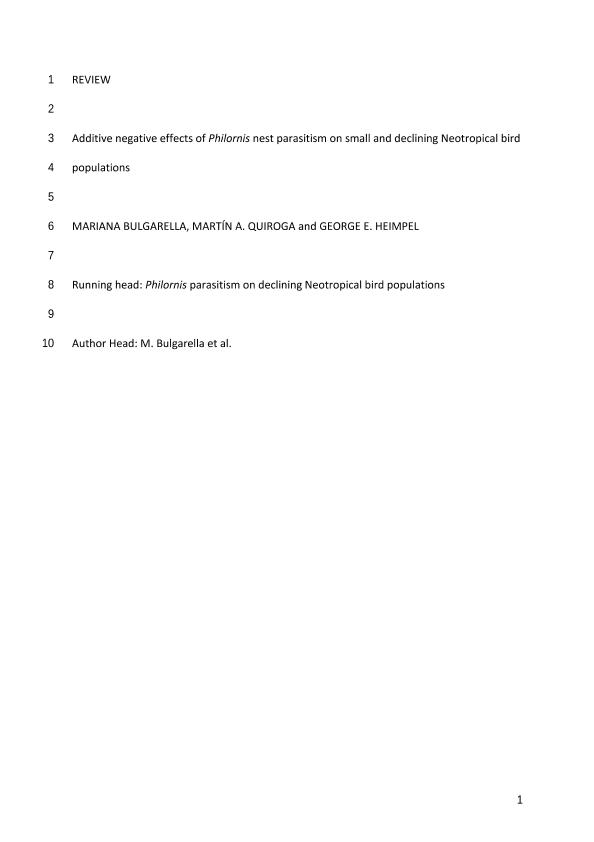Artículo
Additive negative effects of Philornis nest parasitism on small and declining Neotropical bird populations
Fecha de publicación:
09/2018
Editorial:
Elsevier
Revista:
Biological Conservation
ISSN:
0006-3207
Idioma:
Inglés
Tipo de recurso:
Artículo publicado
Clasificación temática:
Resumen
The declining-population paradigm holds that small populations are particularly vulnerable to anthropogenic influences such as habitat destruction, pollution and species introductions. While the effects of particular stressors, such as parasitism, may be unimportant in a large, healthy population, they can be serious and even devastating in situations characterized by a restricted geographic range, or by fragmented or reduced population sizes. We apply this idea to nest parasitism of threatened Neotropical bird species that exist in small populations, focusing on dipteran nest parasites in the genus Philornis. We review the literature on Philornis parasitism exerting negative pressure on bird populations that have become small and isolated due to human actions and present a new case of Philornis parasitism of a threatened hummingbird species. Our aim is to raise awareness about the exacerbating effect that nest parasites can have on small and declining bird populations; especially when biological information is scarce. The five reviewed cases involve two species of Darwin?s Finches in the Galápagos Islands attacked by the invasive P. downsi, two species of hawks on islands in the Caribbean attacked by the native P. pici and P. obscura, and the Yellow Cardinal (Gubernatrix cristata) in southern South America attacked by an unknown Philornis species. We also present new documentation of parasitism of a threatened hummingbird species in mainland Ecuador by an unidentified Philornis species. We recommend more field studies to determine the presence of nest parasites in bird populations worldwide to improve understanding how nest parasites affect bird fitness and population viability and to allow time to act in advance if needed. Parasitism by Philornis may represent a severe mortality factor in most already threatened bird species, putting them at greater risk of extinction. Therefore, parasitism management should be included in all threatened species recovery plans.
Palabras clave:
avian nest parasites
,
host-parasite interactions
,
neotropics
,
Philornis
Archivos asociados
Licencia
Identificadores
Colecciones
Articulos(ICIVET-LITORAL)
Articulos de INST. DE CIENCIAS VETERINARIAS DEL LITORAL
Articulos de INST. DE CIENCIAS VETERINARIAS DEL LITORAL
Citación
Bulgarella, Mariana; Quiroga, Martin Anibal; Heimpel, George E.; Additive negative effects of Philornis nest parasitism on small and declining Neotropical bird populations; Elsevier; Biological Conservation; 9-2018
Compartir




